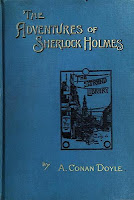I've been involved in a lively debate at the Wendell Berry Society Facebook page about Berry's recent talk expanding on previous comments supporting same-sex marriage. Much of what he said to a gathering of Baptist ministers I agree with, but I can't follow his argument to the conclusion that individual Christians and churches that refuse to affirm "gay marriage" are continuing, in Berry's words, "the history of Christian war, torture, terror, slavery and annihilation against Jews, Muslims, black Africans, American Indians and others." I also disagree with his seeming acceptance of the modern construct of sexual orientation: a concept the Bible -- which Berry often cites as a source of wisdom and guidance -- knows nothing of.
Berry reminds us that the Bible says much more about adultery and fornication than it does about homosexuality, and he's right to point out the hypocrisy when Christians single out one sort of behavior as "perversion" while ignoring wide swathes of scripture. I for one am dismayed at the easy acceptance of divorce among evangelicals, and as I've written before, the cheerleading of some defenders of traditional marriage for an economic system that undermines the values they claim to uphold. Berry is absolutely right that heterosexual marriage needs less to be defended and more to be practiced.
Nevertheless, I believe scripture and the overwhelming consensus of the church around the world, and down thru the ages, is that same-sex behavior is sin and that God's design for marriage is one man, one woman, for life. This design isn't rooted in any man-made tradition or law, but in His creation -- a creation that Wendell Berry movingly celebrates in his writings. Yes, the Bible has a lot more to say about loving our neighbor than homosexuality, but it doesn't follow that Christian are free to ignore what it has to say about the latter.
I'm sad that my hero has taking this position -- and there's a lot more that could be said -- but I'll let Mr. Berry have the last word.
Kindness from readers is something that no essayist (and no writer of any other kind) has a right to expect. The kindness I have received from readers I count as the only profit from my work that is entirely net. I am always grateful for it and often am deeply moved by it.
But kindness is not—is never—the same as complete agreement. An essayist not only has no right to expect complete agreement but has a certain responsibility to ward it off. If you tell me, dear reader, that you agree with me completely, then I must suspect one or both of us of dishonesty. I must reserve the right, after all, to disagree with myself.
But however much I may change my mind, I will never agree with those saleswomen and salesmen who suggest that if I will only do as they say, all will be fine. All, dear reader, is not going to be fine. Even if we all agreed with all the saints and prophets, all would not be fine. For we would still be mortal, partial, suffering poor creatures, not very intelligent and never the authors of our best hope.
Quote from the Preface to
Sex, Economy, Freedom & Community (pp. xix-xx)


